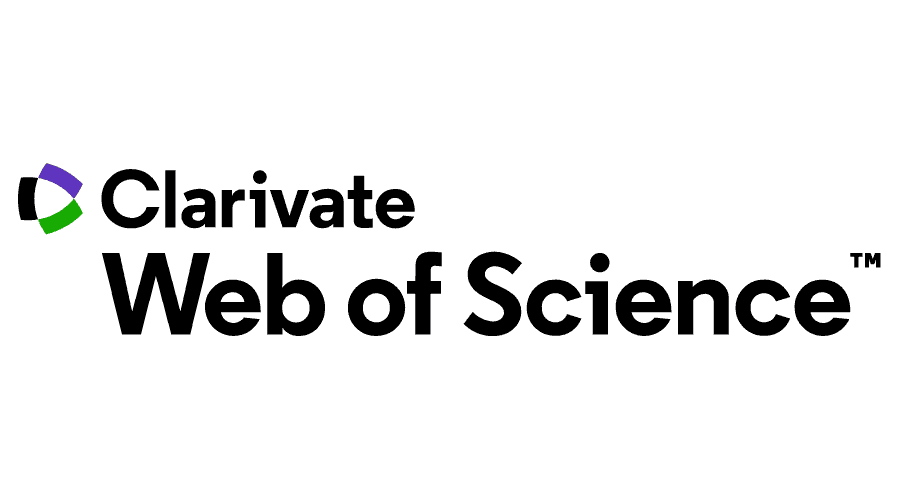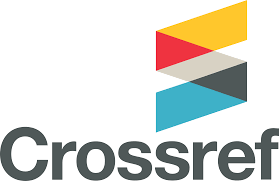Abstract
Research Aims: This study examined the impact of work-life balance (WLB) initiatives on gig worker productivity, focusing on the mediating role of job satisfaction and the moderating effects of gig work characteristics and technological support.
Design/Methodology/Approach: PLS-SEM was used in this study to analyse survey data collected from a sample of 400 gig workers engaged in various platforms, including Gojek, Grab, Shopee, and Freelancer.com. The survey instrument comprised structured questions designed to measure key constructs, namely WLB initiatives, technological support, job satisfaction, and employee productivity.
Research Findings: WLB initiatives significantly positively impacted employee productivity, with job satisfaction functioning as a key mediating factor in this relationship. Moreover, the effectiveness of WLB initiatives was further amplified under conditions of low work intensity, stable gig roles, and robust technological support.
Theoretical Contribution/Originality: By applying the Job Demands-Resources (JD-R) model to the gig economy, this study highlighted the critical role of tailored interventions, specifically the integration of technological tools and effective workload management, in enhancing both productivity and job satisfaction among gig workers.
Managerial Implication in the South East Asian Context: The findings underscored the necessity for culturally responsive WLB initiatives and enhanced technological support to address persistent challenges, including job insecurity and inconsistent workloads, within Southeast Asia’s evolving labour market.
Research Limitation & Implications: The cross-sectional design of this study limited the ability to draw causal inferences, and the findings may not be fully generalisable beyond the Indonesian context. Future research should employ longitudinal designs and examine diverse cultural settings to refine and validate strategies aimed at promoting sustainable productivity and well-being among gig workers.
References
Adnan Bataineh, K. (2019). Impact of work-life balance, happiness at work, on employee performance. International Business Research, 12(2), 99-112. https://doi.org/10.5539/ibr.v12n2p99.
Akter, F., Shakil, M. R. U., Rashid, A. A., Fatema, K., Akter, Y., Saky, S. A. I., ... & Ab Hamid, K. (2024). AI-Driven workload optimization: Enhancing employee well-being and productivity to promote sustainable economic growth (SDG 8) in Malaysia. International journal of research and innovation in social science, VIII(XIX), 70–86. https://doi.org/10.47772/IJRISS.2024.ICAME2406.
Alam, R. (2025). Building adaptive workforces: HRM and digital competency in tourism innovation. Global Review of Tourism and Social Sciences, 1(2), 119-128. https://doi.org/10.53893/grtss.v1i2.357.
Alzoubi, M. M., Al-Mugheed, K., Oweidat, I., Alrahbeni, T., Alnaeem, M. M., Alabdullah, A. A. S., ... & Hendy, A. (2024). Moderating role of relationships between workloads, job burnout, turnover intention, and healthcare quality among nurses. BMC psychology, 12(1), 495. https://doi.org/10.1186/s40359-024-01891-7.
Ashford, S. J., Caza, B. B., & Reid, E. M. (2018). From surviving to thriving in the gig economy: A research agenda for individuals in the new world of work. Research in Organizational Behavior, 38, 23-41. https://doi.org/10.1016/j.riob.2018.11.001.
Avram, S. (2022). Do workers like employer driven flexibility? Experimental evidence on work and pay uncertainty and willingness to work. European Journal of Work and Organizational Psychology, 31(5), 685-697. https://doi.org/10.1080/1359432X.2021.2021885.
Bakker, A. B., & De Vries, J. D. (2021). Job Demands–Resources theory and self-regulation: New explanations and remedies for job burnout. Anxiety, stress, & coping, 34(1), 1-21. https://doi.org/10.1080/10615806.2020.1797695.
Bakotić, D. (2016). Relationship between job satisfaction and organisational performance. Economic research-Ekonomska istraživanja, 29(1), 118-130. https://doi.org/10.1080/1331677X.2016.1163946.
Belloni, M., Carrino, L., & Meschi, E. (2022). The impact of working conditions on mental health: Novel evidence from the UK. Labour Economics, 76, 102176. https://doi.org/10.1016/j.labeco.2022.102176.
Brafford, A. M. (2016). Work-Life Flow: Reframing the Stale Concept of “Work-Life Balance” for the Legal Profession. [Final paper and presentation for graduate level course titled Good Work, Claremont Graduate University] ResearchGate. https://doi.org/10.13140/RG.2.2.22109.05601.
Bulińska-Stangrecka, H., Bagieńska, A., & Iddagoda, Y. A. (2021). Work-life balance during COVID-19 pandemic and remote work: a systematic literature review. In B. Akkaya, K. Jermsittiparsert, M. Abid Malik, & Y. Kocyigit (Eds.), Emerging Trends and Strategies for Industry 4.0: During and Beyond Covid-19 (pp. 59–80). Warsaw: Walter de Gruyter (Sciendo). https://doi.org/10.2478/9788366675391-009
Bunjak, A., Černe, M., Nagy, N., & Bruch, H. (2023). Job demands and burnout: The multilevel boundary conditions of collective trust and competitive pressure. Human Relations, 76(5), 657-688. https://doi.org/10.1177/00187267211059826.
Cohen, C., Pignata, S., Bezak, E., Tie, M., & Childs, J. (2023). Workplace interventions to improve well-being and reduce burnout for nurses, physicians and allied healthcare professionals: a systematic review. BMJ open, 13(6), e071203. https://doi.org/10.1136/bmjopen-2022-071203.
Davidescu, A. A., Apostu, S. A., Paul, A., & Casuneanu, I. (2020). Work flexibility, job satisfaction, and job performance among Romanian employees—Implications for sustainable human resource management. Sustainability, 12(15), 6086. https://doi.org/10.3390/su12156086.
Dawson, M., Guchait, P., Russen, M., Wang, X., & Pasamehmetoglu, A. (2023). Hospitality organizational culture: impact on employee’s job satisfaction, organizational citizenship behaviors, service recovery performance, and intention to leave. Journal of Human Resources in Hospitality & Tourism, 22(3), 460-488. https://doi.org/10.1080/15332845.2023.2180963.
De Ruyter, A., & Rachmawati, R. (2020). Understanding the working conditions of gig workers and decent work: evidence from Indonesia’s online ojek riders. Sozialpolitik, 2, 1-16. https://doi.org/10.18753/2297-8224-159.
De Stefano, V. (2016). The rise of the" just-in time workforce": on demand work, crowdwork, and labor protection in the" gig economy". Comparative labor law and policy journal, 37(3), 461-471. https://doi.org/10.2139/ssrn.2682602.
Glavin, P., & Schieman, S. (2022). Dependency and hardship in the gig economy: The mental health consequences of platform work. Socius, 8, 23780231221082414. https://doi.org/10.1177/23780231221082414.
Haar, J. M., Russo, M., Suñe, A., & Ollier-Malaterre, A. (2014). Outcomes of work–life balance on job satisfaction, life satisfaction and mental health: A study across seven cultures. Journal of vocational behavior, 85(3), 361-373. https://doi.org/10.1016/j.jvb.2014.08.010.
Hair Jr, J. F., Sarstedt, M., Ringle, C. M., & Gudergan, S. P. (2023). Advanced issues in partial least squares structural equation modeling. Thousand Oaks: Sage Publications.
Hatidja, S., Mariana, L., Quach, T. M., & Aisyah, S. (2025). employee excellence and workplace diversity: Key drivers of satisfaction, retention, and brand success in ethnic restaurants. Global Review of Tourism and Social Sciences, 1(2), 158-171. https://doi.org/10.53893/grtss.v1i2.319.
Hibrida, A. R. & Sunarni (2023). The future of work: Navigating the challenges and opportunities of automation, gig economy, and skills evolution in a post-pandemic world. West Science Interdisciplinary Studies, 1(08), 657-666. https://doi.org/10.58812/wsis.v1i08.186.
Jaharuddin, N. S., & Zainol, L. N. (2019). The impact of work-life balance on job engagement and turnover intention. The South East Asian Journal of Management, 13(1), 106-118. https://doi.org/10.21002/seam.v13i1.10912.
Jamaluddin. (2025). The impact of remote working on employee productivity during COVID-19 in Indonesia: The Moderating Role of Job Level and the Influence of Cultural Adaptability. Global Review of Tourism and Social Sciences, 1(2), 88–98. https://doi.org/10.53893/grtss.v1i2.356
Kalleberg, A. L. (2018). Job insecurity and well-being in rich democracies. The Economic and social review, 49(3, Autumn), 241-258.
Koopmans, L., Bernaards, C. M., Hildebrandt, V. H., Schaufeli, W. B., de Vet Henrica, C. W., & Van Der Beek, A. J. (2011). Conceptual frameworks of individual work performance: A systematic review. Journal of occupational and environmental medicine, 53(8), 856-866. https://doi.org/10.1097/JOM.0b013e318226a763.
Liu, R., & Yin, H. (2024). How algorithmic management influences gig workers’ job crafting. Behavioral Sciences, 14(10), 952. https://doi.org/10.3390/bs14100952.
Mercado, J. O. (2019). Work life balance and level of satisfaction among women teachers assigned in the northernmost part of the Province of Surigao Del Sur, Philippines. The South East Asian Journal of Management, 13(2), 140–150. https://doi.org/10.21002/seam.v13i2.11344.
Ortega, L., & Acero, J. P. (2025). The nexus of organizational culture and work performance: The mediating role of organizational politics in local government setting. Global Review of Tourism and Social Sciences, 1(2), 129-144. https://doi.org/10.53893/grtss.v1i2.362.
Orth, B. (2025). Forging mobilities, becoming ideal workers? Temporary migration and the gig economy. Journal of Ethnic and Migration Studies, 1-19. https://doi.org/10.1080/1369183X.2025.2467176.
Pilatti, G. R., Pinheiro, F. L., & Montini, A. A. (2024). Systematic literature review on gig economy: Power dynamics, worker autonomy, and the role of social networks. Administrative Sciences, 14(10), 267. https://doi.org/10.3390/admsci14100267.
Pratomo, D. S., Saputra, P. M. A., Nur, D. A., Asrofi, C. N., & Zenritami, S. L. (2024). Gig workers in the digital era in Indonesia: Development, vulnerability and welfare. In Proceedings of the 2023 Brawijaya International Conference (BIC 2023) (Vol. 294, p. 47). London: Springer Nature. https://doi.org/10.2991/978-94-6463-525-6_6.
Putri, T. E., Darmawan, P., & Heeks, R. (2023). What is fair? The experience of Indonesian gig workers. Digital Geography and Society, 5, 100072. https://doi.org/10.1016/j.diggeo.2023.100072.
Singh, N., Singh, K., & Parmar, H. (2024). Leveraging brand reputation for job engagement in the digital food delivery context. Acta Psychologica, 251, 104615. https://doi.org/10.1016/j.actpsy.2024.104615.
Spector, P. E. (1997). Job satisfaction: Application, assessment, causes, and consequences. Thousand Oaks: Sage Publications. https://doi.org/10.4135/9781452231549.
Syafriani, V., & Yuliani, T. (2025). Bridging Theories and Practice: Organizational Management in an Indonesian School Context. Global Review of Tourism and Social Sciences, 1(2), 99-118. https://doi.org/10.53893/grtss.v1i2.338.
Wang, T. L., & Oscar, W. (2024). How Supportive and Competitive Work Environments Influence Job Attitudes and Performance in French Sales Roles. Global Review of Tourism and Social Sciences, 1(1), 1-12. https://doi.org/10.53893/grtss.v1i1.322.
Wang, Y., Huang, Q., Davison, R. M., & Yang, F. (2021). Role stressors, job satisfaction, and employee creativity: The cross-level moderating role of social media use within teams. Information & management, 58(3), 103317. https://doi.org/10.1016/j.im.2020.103317.
Wilson, N., Sajikumar, S., Kumar, P., N.J., A., & Nair, S. B. (2024). exploring the gig worker’s work life balance and productivity. International Journal of Research Publication and Reviews, 5(7), 2811–2817. https://doi.org/10.55248/gengpi.5.0724.1835.
Zhang, P. (2025). Training for gig workers: A systematic review and research agenda. The Learning Organization, 32(2), 149–168. https://doi.org/10.1108/TLO-10-2022-0124.
Recommended Citation
Parman, Parman; Shafar, Muhammad Uliah; and Putri, Deasy Soraya A. Aminartha
(2025)
"Balancing the Scales: The Role of Work-Life Balance and Technological Support in Enhancing Gig Worker Productivity in Indonesia,"
The South East Asian Journal of Management: Vol. 19:
No.
1, Article 4.
DOI: 10.7454/seam.v19i1.1834
Available at:
https://scholarhub.ui.ac.id/seam/vol19/iss1/4
Included in
Human Resources Management Commons, Organizational Behavior and Theory Commons, Technology and Innovation Commons











